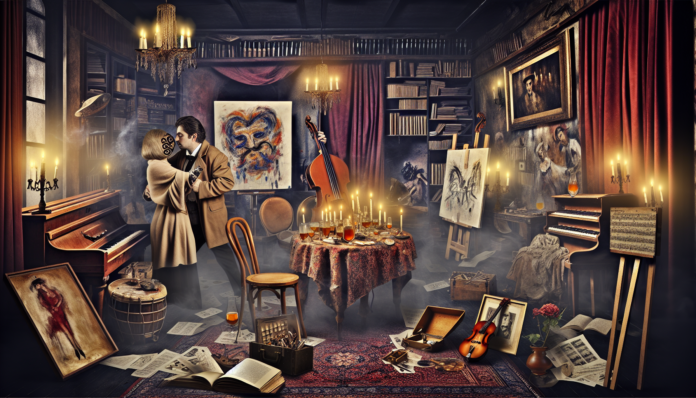Introduction
Priscilla Presley, an emblematic figure of the 1960s and 70s, captured the hearts of fans through her blend of beauty, grace, and connection to one of the most legendary icons of all time—Elvis Presley. However, her love life became the subject of intense scrutiny that echoed across the entertainment landscape. Set against the backdrop of a conservative America, Priscilla’s experiences highlight the complexities of love and celebrity during a transformative era. The prevailing norms of the time often dictated strict moral codes, making her story a focal point for societal debate.
The Scandal
The scandal that would forever shape Priscilla’s narrative occurred in the early 1970s, when rumors of her tumultuous marriage to Elvis Presley began to emerge. After their wedding in 1967, many were shocked to learn about Elvis’s alleged infidelities, particularly with rising Hollywood starlets and backup singers.
- Key Events:
- Summer of 1971: Priscilla discovered evidence of Elvis’s ongoing affairs, leading to a private confrontation.
- Public fallout: The whispers became louder when magazines published sensationalized accounts of their marital struggles.
One notable incident involved a supposed affair between Elvis and actress Ann-Margret, a tumultuous relationship that Priscilla later openly discussed in interviews. “It tore at my heart,” she reflected, “but I also knew the world saw Elvis as a man who could have anyone.”
The media frenzy around the couple intensified, leading to widespread speculation about their marriage. Tabloids pounced on every detail, making Priscilla a subject of public fascination and judgment.
Moral and Cultural Analysis
The reaction to Priscilla’s scandal was a reflection of the conservative values prevalent at the time.
- Societal Reaction:
- Shock and Disappointment: Many fans viewed Priscilla as the ideal wife, leading to misconceptions about her supposed complicity in Elvis’s actions.
- Judgment: Public opinion sliced through personal loyalty, often framing Priscilla as the victim yet simultaneously a source of scandal herself.
The consequences were enormous. The couple’s marriage unraveled under the pressure, leading to their divorce in 1973. Priscilla lost not only a partner but also a significant part of her identity, thrust into the limelight as a divorced woman.
Today’s audiences might perceive Priscilla’s struggles through a different lens. Modern values around relationships emphasize personal autonomy and empowerment. The focus would likely shift to understanding the emotional dynamics of the marriage rather than stigmatizing Priscilla for her experiences.
- Contrasting Perspectives:
- Then: Marriage was often seen as a sacred institution, making infidelity a cardinal sin that drew severe societal repercussions.
- Now: Conversations around fidelity, relationship dynamics, and emotional health have evolved, allowing for greater empathy towards the individuals involved.
Priscilla’s journey underscores the shifting sands of cultural attitudes towards marriage, celebrity, and vulnerability. No longer vilified, her story can serve as a cautionary tale of love and betrayal, reflecting broader societal changes in how we view intimacy and personal lives in the public eye.

